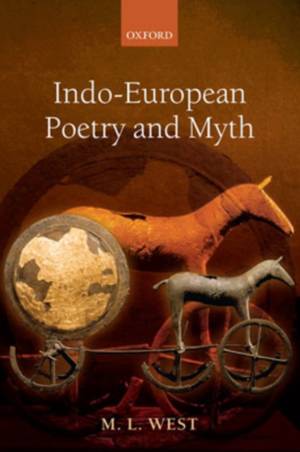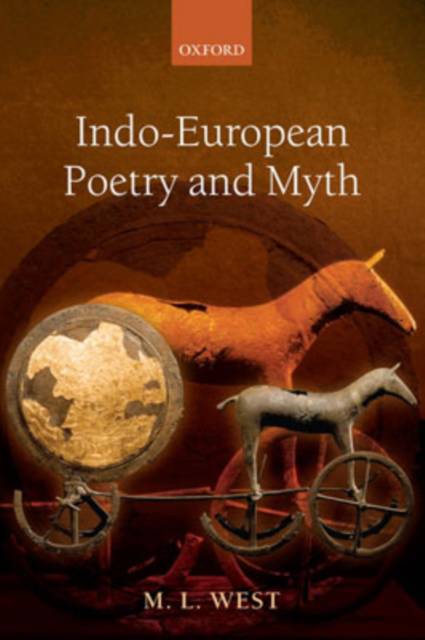
Bedankt voor het vertrouwen het afgelopen jaar! Om jou te bedanken bieden we GRATIS verzending (in België) aan op alles gedurende de hele maand januari.
- Afhalen na 1 uur in een winkel met voorraad
- In januari gratis thuislevering in België
- Ruim aanbod met 7 miljoen producten
Bedankt voor het vertrouwen het afgelopen jaar! Om jou te bedanken bieden we GRATIS verzending (in België) aan op alles gedurende de hele maand januari.
- Afhalen na 1 uur in een winkel met voorraad
- In januari gratis thuislevering in België
- Ruim aanbod met 7 miljoen producten
Zoeken
Omschrijving
The Indo-Europeans, speakers of the prehistoric parent language from which most European and some Asiatic languages are descended, most probably lived on the Eurasian steppes some five or six thousand years ago. Martin West investigates their traditional mythologies, religions, and poetries, and points to elements of common heritage. In The East Face of Helicon (1997), West showed the extent to which Homeric and other early Greek poetry was influenced by Near Eastern traditions, mainly non-Indo-European. His new book presents a foil to that work by identifying elements of more ancient, Indo-European heritage in the Greek material. Topics covered include the status of poets and poetry in Indo-European societies; metre, style, and diction; gods and other supernatural beings, from Father Sky and Mother Earth to the Sun-god and his beautiful daughter, the Thunder-god and other elemental deities, and earthly orders such as Nymphs and Elves; the forms of hymns, prayers, and incantations; conceptions about the world, its origin, mankind, death, and fate; the ideology of fame and of immortalization through poetry; the typology of the king and the hero; the hero as warrior, and the conventions of battle narrative.
Specificaties
Betrokkenen
- Auteur(s):
- Uitgeverij:
Inhoud
- Aantal bladzijden:
- 540
- Taal:
- Engels
Eigenschappen
- Productcode (EAN):
- 9780199280759
- Verschijningsdatum:
- 12/07/2007
- Uitvoering:
- Hardcover
- Formaat:
- Genaaid
- Afmetingen:
- 156 mm x 242 mm
- Gewicht:
- 948 g

Alleen bij Standaard Boekhandel
+ 1015 punten op je klantenkaart van Standaard Boekhandel
Beoordelingen
We publiceren alleen reviews die voldoen aan de voorwaarden voor reviews. Bekijk onze voorwaarden voor reviews.









